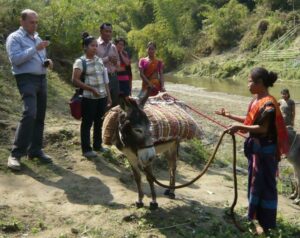Making local, personal, psychological and emotional aspects of development visible
 Blog post by PHOEBE BEEDELL and is shared generously by The Ideal Practitioner.
Blog post by PHOEBE BEEDELL and is shared generously by The Ideal Practitioner.
You might be interested in the PhD research that I’m doing with professional development workers and activists in Bangladesh – in-country nationals, rather than ex-pats.
The situation of local professionals has been sorely overlooked in the relatively recent spate of ‘aidnographies’ that seek to capture practitioners’ reflections on the experience of doing development, but I hope to change that, a little.
I’m particularly interested in expanding the scope of these kinds of development practitioner studies to include the affective and emotional aspects of development work, and attach an abstract that explains my research in a little more detail.
ABSTRACT: Negotiating the Dilemmas of Development: A psycho-social study of NGO workers and activists in Bangladesh
The recent announcement of new Sustainable Development Goals (SDGs) agreed between nation states and a phalanx of civil society organisations, reiterate the pressing need for action to combat…It is within this much wider context that I want to examine some very specific aspects of how workers in the global development industry and their allies in civil society operate.
The World Bank’s influential World Development Report of 2015 calls for greater reflexivity on the part of development professionals. The audience to which it speaks are those people involved in interventions in the ‘Third World’ aimed at tackling structural inequalities and injustices. These interventions are anchored in the values of universal human rights and are made manifest on the whole, through an approach to global development dominated by neo-liberal ideas and Western management practices.
Central to both the human rights and neo-liberal perspectives on development is a conception of the individual as the ideal site for autonomous, self-reliant, rational decision-making, moral responsibility and rights-bearing. Paradoxically however, the concomitant and prevailing three-sector model of development (in which state, private sector and civil society work in synergy) renders the individual and associated personal, psychological and emotional aspects of development entirely invisible.
My PhD research is an inductive exploration of the personal biographies and professional experiences of middle-class NGO workers and activists in Bangladesh. The study investigates how our internal (emotional and psychological) and external (social and material) resources are put to work in the service of developmental activities.
The emerging premise is that in order to develop (or change) others, one must engage in developing oneself, and to develop oneself, one must care for oneself and be cared for and developed, by others.
- Making Public Deliberations Inclusive with Mixed Methods AR - October 26, 2020
- Participatory action research with Aboriginal Elders: Ngulluk Koolunga Ngulluk Koort project - October 12, 2020
- Bringing the relational self to ART: Interview with Dr. Yvonne Skipper - October 1, 2020

